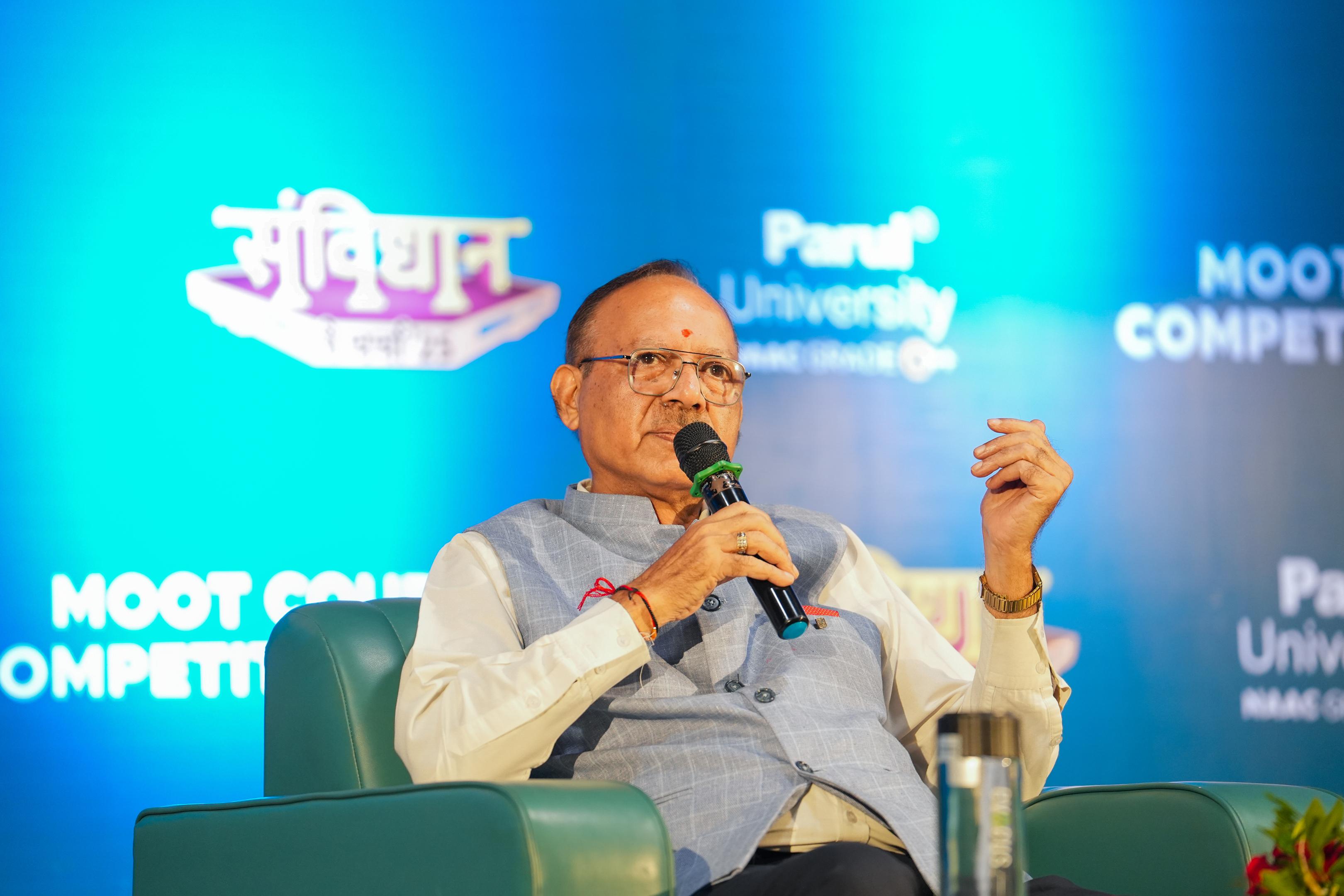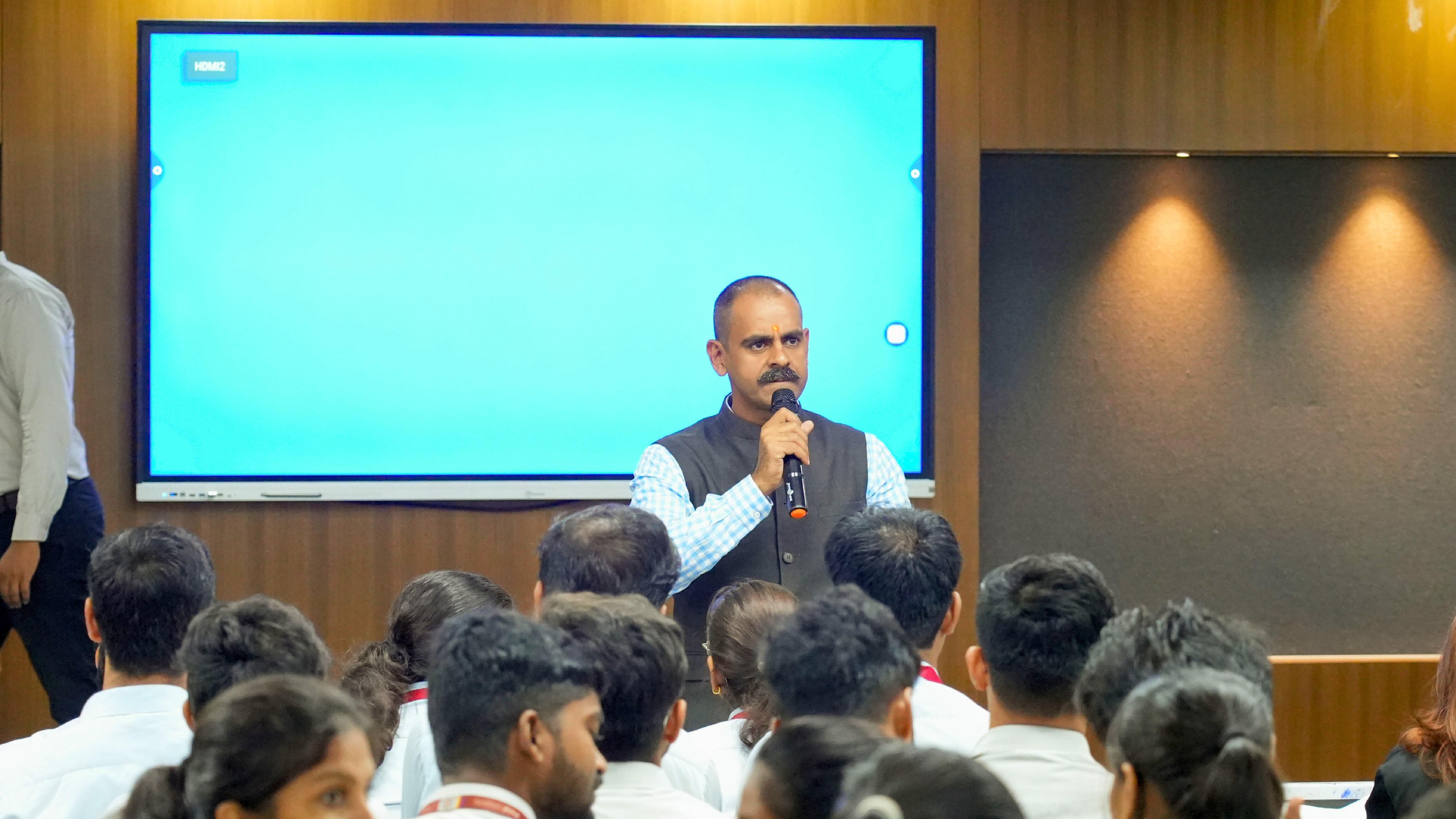What does a man who supervised eight hangings, faced caste bias, and turned a rejected job application into a twenty-year career at Tihar Jail have to teach young law students?
Rejected once for being too thin, Sunil Kumar went on to spend two decades as one of Tihar Jail’s most respected officers. His story, shared at Samvidhan Pe Charcha 3.0, was not about crime and punishment but about destiny, resilience, and courage.
In addition to constitutional discussions and moot court contests, Parul University provided its students with experiences with knowledge through Samvidhan Pe Charcha 3.0. The conversation with Sunil Kumar, the former Assistant Superintendent of Tihar Jail and author of the widely read biography Black Warrant: Prisoner of Tihar Jail, stood out among the numerous voices that influenced this year's discussion as an example of tenacity, conviction, and integrity in public service.
Sunil Kumar’s journey into law was never planned. A Delhi University graduate, he had originally wanted to pursue an M.Sc. When admission didn’t work out, he turned toward the law. “At our time, people who didn’t get admission anywhere went for LLB. I believed whatever God does, He does for our betterment,” he reflected. That faith in destiny carried him forward, but it was his discipline and work ethic that defined his career.
His entry into Tihar Jail was itself a test. Initially rejected for the Assistant Superintendent position because of his lean build, he was unexpectedly called back after twenty days and selected.
“Whatever is in your destiny you will get, but you need to keep your target very high.”
- Sunil Kuma, Former Legal Advisor, Delhi Prisons
Working with murderers in Central Jails, undertrials in District Jails, petty offenders in Sub-Division Jails, and special convicts in Special Jails, Sunil Kumar spent more than two decades in India's largest and most complex prison system.
His ideas on justice, decency, and the human condition were significantly impacted by his eight executions as a supervisor during this rigorous job. Outside of the prison, caste and social prejudices tried his resolve, but he overcame them with honesty, diligence, and sincerity, turning setbacks into victories and becoming one of the system's most admired officers.
Sunil Kumar’s experiences became the foundation for his writing. His memoir Black Warrant not only recounts his years in Tihar but also shares the haunting realities of capital punishment, including one prisoner’s final words, claiming he was sacrificing himself to fight corruption.
His subsequent works, Social Rights of Prisoners and Compendium of Prison Wars, explore themes of justice, rehabilitation, and the ethical responsibilities of prison administration.
For law students listening to him at Parul University, these writings were more than stories; they were living documents that connected the Constitution’s promise of justice with the realities inside prison walls.
Beyond the harrowing accounts of prison life, Kumar’s message was grounded in hope and determination.
“Kisi bhi job mein jao, public, private, or government, try to make your mark. If you have a target in your mind and work hard, you will definitely succeed. Wherever you go, do hard work and make your mark. If you do hard work, a bright future is ahead.”
He acknowledged that the prison department is often undervalued, yet he spoke with deep gratitude for the role it played in shaping his life.
In an event dedicated to rethinking the Constitution and justice, Sunil Kumar’s presence was a reminder that law is not just theory; it is lived practice. His life story bridged the gap between the ideals of liberty, equality, and fraternity and the realities of social bias, crime, and punishment. For students preparing to enter the legal profession, his journey underscored that resilience, ethics, and service are as essential as legal acumen.
The Constitution may guide the nation, but it is individuals like Sunil Kumar who live with integrity even in the toughest roles, ensuring its spirit survives.
[ Samvidhan Pe Charcha 3.0, Parul University law, Sunil Kumar, Tihar Jail, Black Warrant book, prison reforms in India, justice and human rights]



.jpg)
.jpg)


